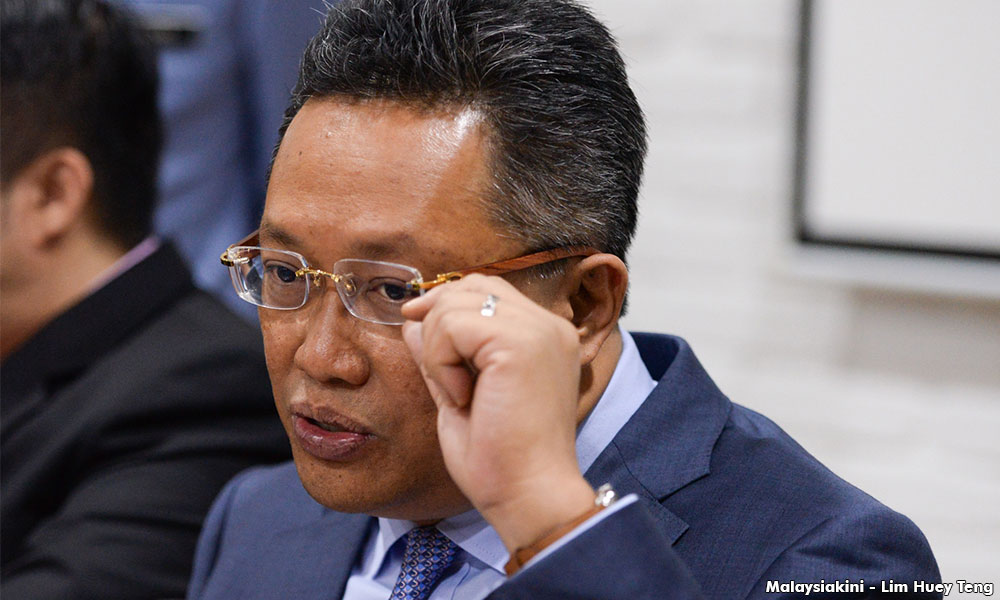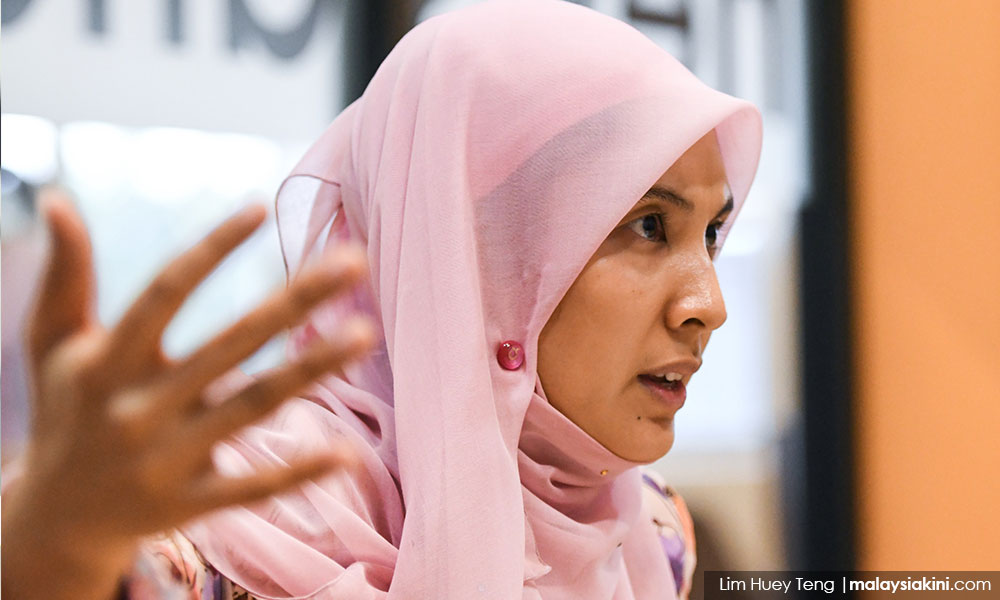QUESTION TIME | In one thing at least we have plenty of choices - whereas in most other countries there is only one education system, in Malaysia we have at least four: national schools (Malay medium), Chinese schools, Tamil schools and Islamic schools.
For many years now, there have been intermittent calls to offer Malaysians yet another choice of medium of instruction - English - but these have persistently fallen on deaf ears at both government and opposition level.
There is no real champion within the government for such a move. Will Umno champion a call for English-medium schools? No. Neither will MCA, which must be seen to promote Chinese schools, or MIC, one of whose political platforms is to promote Tamil schools even if they are bad and poorly funded compared to other schools.
With no champions for English-medium schools within government and the ruling elite, the clarion calls for their establishment faded away until recently when Minister in the Prime Minister’s Department Abdul Rahman Dahlan (photo) dropped a mini-bomb and resurrected thorny issues from the past when he suggested that English-medium schools be reintroduced.

His call has been widely supported by a cross-section of people but largely non-Malay and mainly liberal educationists.
Although Abdul Rahman is an Umno MP, he comes from Sabah. What is different in Sabah and Sarawak is that under the agreement which they joined Malaysia way back in 1963, they have the right to use English as their official language too.
Since English was more widely used in schools in both Sabah and Sarawak, many Malaysians from those states were far more proficient in English than their peninsula counterparts. But even there, with English declining in importance, the standard of the language was falling.
The late Adenan Satem, who was chief minister of Sarawak when he died, said in 2015 that Sarawak has the right to use English as one of its official languages without any restriction by the federal government as there is no condition that states otherwise.

Adenan (photo) had lamented the decline of the standard of English and said that his decision to use English as one of the official languages in the state was to improve the level of English proficiency among Sarawakians in meeting the demands of the job market.
“Sarawakians should realise that to be employed by international companies which offer employees good salaries, they must have a high command of English.”
I would ditto that for all Malaysians and so would lots of other Malaysians. But since there have been no champions in the ruling party until now to push for English-medium schools, those who want them have no choice but to hope that Sabah and Sarawak would lead the charge.
No help from the opposition
There are many Malaysians whose mother tongue is effectively English, and I would count myself among one of those. Almost 100 percent of my friends, my family and I speak in English, and these are friends of all races. English may well be the most widely spoken language after Malay.
In 2003, the last of his long 22-year term as prime minister, Dr Mahathir Mohamad, hitherto a strong proponent of using Malay as the medium of instruction for all subjects and who pushed it through strongly as education minister from 1974, nearly 30 years later in 2003 reversed his thinking. He reintroduced English as the medium of instruction for science and maths.
But after six years, following strong lobbying from Umno, MCA, MIC and various others (including the opposition), and after Mahathir left his position, another reversal was made - the teaching of science and maths reverted to the mother tongue. Pseudo-scientific evidence was dug out to give the decision some semblance of respectability.
DAP secretary-general Lim Guan Eng even praised new Prime Minister Najib Razak in July 2009 whose cabinet approved the reversal.
“The DAP wants to express its support for the reversal of the teaching of Maths and Science in English policy.
“We do not want these attacks to weaken (Najib) as it did (his predecessor) Abdullah Ahmad Badawi, so I suggest, as a way out, that there be some sort of an option or alternative,” Lim said. He did not say what the option was but perhaps, just perhaps, he was referring to English-medium schools.

If you thought that PKR supported it, you are dead wrong. Party vice-president Nurul Izzah Anwar (photo) said in August 2013: “Mahathir bulldozed it without proper planning and preparation and it ended up costing us more than RM8 billion. According to Unesco, technical subjects should be taught in the students’ mother tongue.
“Until and unless most Malaysians speak English at home, I believe we should be pragmatic instead of squabbling about patriotism.”
As he has now for other matters, Mahathir realised too late the importance of English. Here’s what he said, in his trademark, sarcastic but well-put remarks in his Che Det column when news of the reversal of his policy came up in 2009:
“The reason that has been given is that Malays, particularly kampung Malays, just could not do well when the two subjects were taught in English. If we follow this kind of argument we should also stop trying to get Malays to do business because they really cannot do well in that field. They are best at working as wage-earners, particularly in government service. We should encourage them not to try to go into business.”
That statement basically shows up the hypocrisy of both government and opposition cosying up to the more extreme segments of the population in their areas of support, completely disregarding the serious problem of erosion of the standard of English in Malaysia and what it means to both the competitiveness of the country and the future of Malaysian students.
Elegant solution
However, English-medium schools provide an elegant solution to the problem - those whose mother tongue is English, or for any other reasons prefer English as the medium of instruction, can simply send their children to these schools.
Thus, Umno, MCA, MIC, PKR and DAP can all support this proposal to allow English-medium schools and be yet again united in the furtherance of the common good. They will all also have electoral support from everyone, including those from rural areas - for one survey actually showed that a majority of rural parents wanted science and maths to be taught in English. Now they can send their children to English-medium schools.

But don’t expect these parties to lead the charge for English-medium schools, for it will erode their support base. Paradoxically, the charge comes from Umno and BN but this time from across the South China Sea, in Sabah and Sarawak.
If the peninsula parties know what’s good for them, they will jump on the bandwagon if it rolls forward - or risk being left behind in the sands of time.
For good measure, let’s have one quote in support of English-medium schools, this time from a profile of Daim Zainuddin, former finance minister:
“Being a youth of the 40s, during a period when the British colonial policy encouraged Malays to attend Malay schools, when Malay parents worried about the possible influence of an English education on their children’s religious faith and cultural identity, Daim and his parents were able to transcend these limitations. In fact, his broad-minded parents enrolled all their children in English–medium schools as they did not want their children to become ‘better farmers and fishermen’.”
I can’t find the link anymore but have the quote from a previous article I wrote.
P GUNASEGARAM is amazed at how often Malaysia has chosen to be buried in the sands of time instead of moving forward with the wind. E-mail: [email protected].
The views expressed here are those of the author/contributor and do not necessarily represent the views of Malaysiakini.

